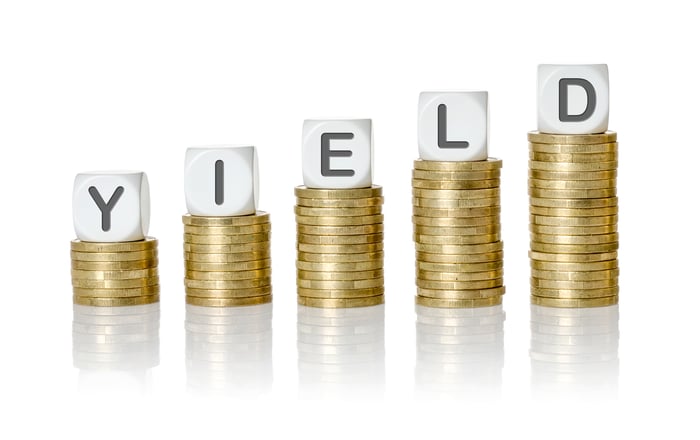In something of an understatement, David Simon, CEO of Simon Property Group (SPG 2.12%), described 2020 as "difficult" in the company's fourth-quarter earnings release. He later used the term "unprecedented," which is a little more appropriate given the hit the mall-focused real estate investment trust (REIT) endured from the coronavirus pandemic and the efforts to slow its spread.
Still, income investors worried that the landlord's generous yield around 5% is too risky might want to take a deeper look. Things are better than they appear.
An ugly year has finally ended
There was no question that Simon Property Group's 2020 financial results would make for difficult reading. Early on in the pandemic, malls were shut down by the government as a way to keep people from congregating and potentially spreading COVID-19. With malls shut, some retailers decided to stop paying rent, leading to expensive lawsuits and negotiations. And even now that malls have largely reopened, shopping hasn't gone back to normal, and vacancies have risen thanks to bankruptcies and troubled stores shutting locations. That's just a high-level summary of what was a year from -- well, a not very nice place filled with fire and brimstone.

Image source: Getty Images.
When all was said and done, Simon's revenue fell a painful 20% from its 2019 levels. Funds from operations (FFO) per share, a metric that's comparable to an industrial concern's earnings, were off by nearly 25%. Given the upheaval and poor financial results, it's not particularly surprising that the real estate investment trust cut its dividend by just under 40% in 2020.
Dividend investors hate dividend cuts, so this move, while understandable, was worrying. And given that the world is still trying to figure out how to live with the coronavirus, it's also understandable that more conservative types might be a bit worried about the dividend even at the reduced level. Rest easy, though -- it looks like it's safe. Here's why.
Got it covered
For starters, Simon could have simply eliminated the dividend and few would have questioned the move, given the pandemic. It is reasonable to assume that the new dividend was purposefully set at a level that management felt was sustainable. (One dividend cut is bad, two in close proximity to each other is virtually unforgivable.) Comparing the dividend and FFO proves this logic out: The second-quarter FFO payout ratio was roughly 60%. It was roughly 65% in the third quarter, and back down to 60% in the fourth quarter.
Since the worst of the shutdowns appear to be past, and vaccines are starting to roll out around the world, it seems safe to assume that investors can look at the third quarter of 2020 as something of a low point. Even if that's not true, there seems to be plenty of wiggle room for the REIT to deal with further adversity before it needs to cut its dividend again.
Then there's the company's investment-grade rated balance sheet, which allowed it to access capital markets for cheap capital even during the pandemic. The last capital raise in January had a blended interest rate of 1.98%, suggesting that the market appreciates Simon's financial strength. Notably, it remains well within the parameters of its key debt covenants, so there's no particular reason to worry about the REIT running into trouble with its creditors. This suggests the dividend is resting on a solid financial foundation.
Nothing to see here
When you take a look at Simon's financial strength and dividend coverage, even during the worst of the pandemic, it clearly looks like the dividend is safe at its current level. In fact, on Simon Property Group's fourth-quarter 2020 earnings conference call, CEO Simon was even talking about future dividend hikes, which he hinted could follow along with improved performance -- which is exactly what happened after the dividend cut during the 2007-to-2009 recession.





